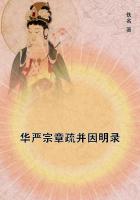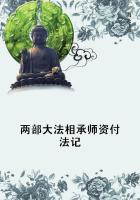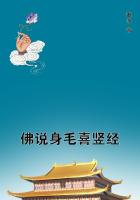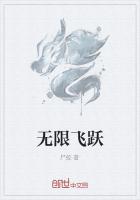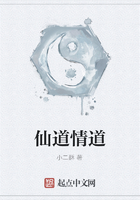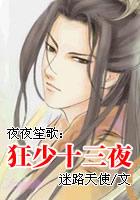In Tolstoy's eyes they were false, paltry, and immoral, and he was at no pains to disguise his opinions. Dissension, leading to violent scenes, soon broke out between Turgenev and Tolstoy; and the latter, completely disillusioned both in regard to his great contemporary and to the lit-erary world of St. Petersburg, shook off the dust of the capital, and, after resigning his commission in the army, went abroad on a tour through Ger-many, Switzerland, and France.
In France his growing aversion from capital punishment became intensified by his witnessing a public execution, and the painful thoughts aroused by the scene of the guillotine haunted his sensitive spirit for long. He left France for Switzerland, and there, among beautiful natural surroundings, and in the society of friends, he enjoyed a respite from mental strain.
"A fresh, sweet-scented flower seemed to have blossomed in my spirit; to the weariness and in-difference to all things which before possessed me had succeeded, without apparent transition, a thirst for love, a confident hope, an inexplicable joy to feel myself alive."
Those halcyon days ushered in the dawn of an intimate friendship between himself and a lady who in the correspondence which ensued usually styled herself his aunt, but was in fact a second cousin. This lady, the Countess Alexandra A.
Tolstoy, a Maid of Honour of the Bedchamber, moved exclusively in Court circles. She was in-telligent and sympathetic, but strictly orthodox and mondaine, so that, while Tolstoy's view of life gradually shifted from that of an aristocrat to that of a social reformer, her own remained unaltered; with the result that at the end of some forty years of frank and affectionate interchange of ideas, they awoke to the painful consciousness that the last link of mutual understanding had snapped and that their friendship was at an end.
But the letters remain as a valuable and inter-esting record of one of Tolstoy's rare friendships with women, revealing in his unguarded confi-dences fine shades of his many-sided nature, and throwing light on the impression he made both on his intimates and on those to whom he was only known as a writer, while his moral philosophy was yet in embryo. They are now about to ap-pear in book form under the auspices of M.
Stakhovich, to whose kindness in giving me free access to the originals I am indebted for the ex-tracts which follow. From one of the countess's first letters we learn that the feelings of affection, hope, and happiness which possessed Tolstoy in Switzerland irresistibly communicated themselves to those about him.
"You are good in a very uncommon way, she writes," and that is why it is difficult to feel unhappy in your company. I have never seen you without wishing to be a better creature.
Your presence is a consoling idea. . . . know all the elements in you that revive one's heart, possibly without your being even aware of it."
A few years later she gives him an amusing account of the impression his writings had already made on an eminent statesman.
"I owe you a small episode. Not long ago, when lunching with the Emperor, I sat next our little Bismarck, and in a spirit of mischief I began sounding him about you. But I had hardly ut-tered your name when he went off at a gallop with the greatest enthusiasm, firing off the list of your perfections left and right, and so long as he declaimed your praises with gesticulations, cut and thrust, powder and shot, it was all very well and quite in character; but seeing that I listened with interest and attention my man took the bit in his teeth, and flung himself into a psychic apoth-eosis. On reaching full pitch he began to get muddled, and floundered so helplessly in his own phrases! all the while chewing an excellent cutlet to the bone, that at last I realised nothing but the tips of his ears--those two great ears of his.
What a pity I can't repeat it verbatim! but how?
There was nothing left but a jumble of confused sounds and broken words."
Tolstoy on his side is equally expansive, and in the early stages of the correspondence falls occa-sionally into the vein of self-analysis which in later days became habitual.
"As a child I believed with passion and with-out any thought. Then at the age of fourteen I began to think about life and preoccupied myself with religion, but it did not adjust itself to my theories and so I broke with it. Without it I was able to live quite contentedly for ten years . . . everything in my life was evenly dis-tributed, and there was no room for religion.
Then came a time when everything grew intelli-gible; there were no more secrets in life, but life itself had lost its significance."
He goes on to tell of the two years that he spent in the Caucasus before the Crimean War, when his mind, jaded by youthful excesses, gradually regained its freshness, and he awoke to a sense of communion with Nature which he retained to his life's end.
"I have my notes of that time, and now read-ing them over I am not able to understand how a man could attain to the state of mental exaltation which I arrived at. It was a torturing but a happy time."
Further on he writes,--"In those two years of intellectual work, I dis-covered a truth which is ancient and simple, but which yet I know better than others do. I found out that immortal life is a reality, that love is a reality, and that one must live for others if one would be unceasingly happy."
At this point one realises the gulf which divides the Slavonic from the English temperament. No average Englishman of seven-and-twenty (as Tol-stoy was then) would pursue reflections of this kind, or if he did, he would in all probability keep them sedulously to himself.

